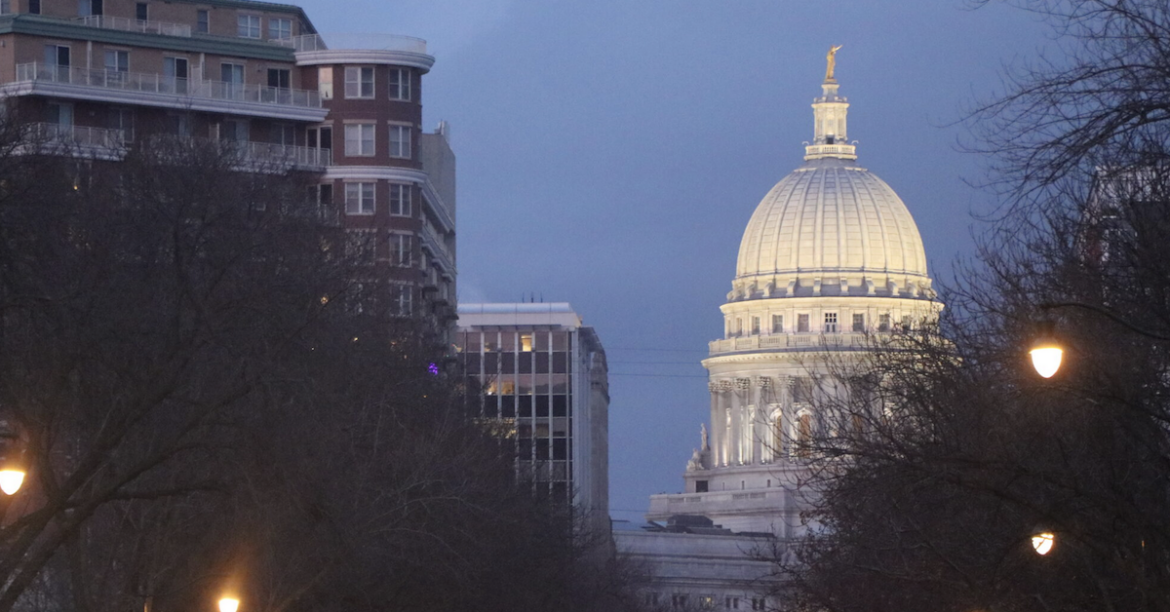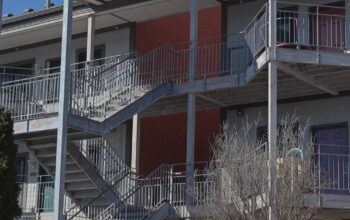Last fall, three bills were introduced in Wisconsin that would impede the rights and security of the trans community, specifically youth. The proposed bills have awakened activists, allies and organizations within the Madison area to help protect and secure the rights of the transgender community.
The bills were introduced on Oct. 4, bringing in a larger number of people who opposed the bills to testify and protest against them than those who supported their passing. Two overflow rooms were opened in the Capitol to provide space for the roughly 200 community members who showed up to testify and during over 15 hours of debating.
Republican Wisconsin officials are following the national trend of attempting to obstruct the rights of transgender people. Two of the proposed bills — AB 377 and AB 378 — attempt to prohibit the ability of transgender athletes to participate and compete on teams that align with their gender identities, on the high school and collegiate levels.
Republican officials in favor of passing the bills say that the reason is to “even the playing field” and protect women’s sports. They argued that biologically men have an athletic advantage in sports compared to biological women.
Sean O’Brien, 25, is the organizing strategist at Fair Wisconsin, the only statewide political advocacy organization for the LGBTQ+ community. The organization is dedicated to protecting and enhancing civil rights within the LGBTQ+ community and strives to find equality for all.
Fair Wisconsin combats these issues hands-on through policy advocacy, legal support, and community education and support services.
O’Brien says all students should be able to view school as a safe place. A bill that would ban a student from playing on the team they align with would remove that feeling of safety.
“But when you start talking about sports teams, and whether or not you'll be allowed to play in sports teams, that’s something that’s very tangible, that you are able to understand,” O’Brien said.
Kal Wogahn is an activist and counselor specializing in trauma whose clientele is predominantly trans adults and teens.
Wogahn says that all people at a young age have a biological drive to learn to value being a part of a group or community. Being discriminated against or separated from groups causes trauma not just in trans people, but in everyone.
“Not being a part of a group or being rejected or being particularly rejected by people we care about, like parents, or peers, or important adults in our life, is experienced by the nervous system as a life threat,” Wogahn said.
The third bill—AB 465, approved by both houses of the Legislature but vetoed by Governor Evers on Dec. 6—attempted to forbid gender-affirming healthcare, such as gender transition for trans youth under the age of 18. Doctors, under the proposed legislation, could have lost their medical licensing if they administered gender-affirming care to a minor.
Republican Representative Scott Allen focused on the mental health issues caused by gender transition in youth during his testimony. Research found by medical professionals shows that less than 1% of transgender people report regret for their gender-affirming care, according to the Systematic Review of Regret after Gender-affirmation Surgery.
“The Trevor Project says that one in three, or about 33% of LGBTQ youth say that their health is poor, almost always, due to anti-LGBTQ legislation or policy,” O’Brien said.
Wogahn also acknowledges that Allen’s testimony does not reflect the reality of mental health issues in trans kids and teens.
“It’s been pretty broadly documented that receiving access to gender-affirming care decreases depression, decreases suicidality and decreases anxiety,” Wogahn said.
SunShine Raynebow, 28, is a trans activist who started her work in advocacy after she came out as trans in 2017 and saw the injustices that trans people face every day. Raynebow feels that these bills are rooted in hate and only seek to create harm and hate against the trans community.
“I fight every day that I wake up. I do what I do so that young people in the community don't have the same fight that we’re having right now,” Raynebow said.
John Peschl is the LGBTQIA+ teacher leader within the Madison Metropolitan School District. Peschl has been working in education for 27 years with roles as a teacher and a teacher mentor. His current position is committed to ensuring that all students, families, staff and educators at MMSD are seen and heard.
Peschl works directly with elementary, middle and high schools to create allyship for the LGBTQ+ communities there. Peschl also works with Gay Straight Alliances to create an all-inclusive, safe space for students to feel seen, heard and have the opportunity to connect with others they can relate to.
“Because we know that in schools when you connect with people, additionally, see yourself in other people, that increases the quality of your day. That allows you to want to come to school, to want to be a part and to feel like it's a good place for you,” Peschl said.
Wogahn believes that finding an accepting and influential community or group as a trans person can be extremely beneficial to their mental health.
“From a counseling perspective, again, sticking to the physiological effects of oppression. A lot of those physiological effects of oppression and lots of trauma are mitigated by having access to community,” Wogahn said.
Regarding athletic activities, MMSD is dedicated to creating a fully inclusive atmosphere. However, when entering a tournament or any sports activity run by the Wisconsin Interscholastic Athletic Association, MMSD is required to follow the WIAA policy guidelines, which are not as inclusive.
MMSD has been implementing the Human Rights Campaign Foundation’s Welcoming Schools training in elementary schools, where they give educators resources and training on how to address bias-based bullying. This has significantly improved trans students’ comfort in coming out to their classmates.
Currently, O’Brien has been involved with Fair Wisconsin legislative advocacy, including participating in non-lobbying meetings with legislators. When potentially harmful legislation is put forward, like these three bills proposing transgender restrictions, all three of which were passed by the Assembly later in October, O’Brien creates a response to the legislation to determine who and what stakeholders and community groups need to be aware of.
At Fair Wisconsin, one of the primary goals is to educate others on LGBTQ+ issues.
“We do that in a number of different ways. Sometimes it is a listening session, sometimes it's a town hall. We really like to elevate the voices of those who are being impacted the most,” O’Brien said.
Fair Wisconsin works closely with the state legislator and informs the community on listening sessions being held.
“We listen to the community, and we kind of tailor our needs, and the community's needs to fit our policy agenda,” O’Brien said.
O’Brien also manages the Wisconsin LGBTQ+ Policy Coalition, a statewide group of individuals, community organizations, and local leaders that work directly with policy and legislation to prevent the passing of bills that would take away from the safety and civil rights of the LGBTQ+ community.
Organizations like GSAFE, ACLU, BLOC, Freedom, Inc., AFT and Planned Parenthood work within the Wisconsin LGBTQ+ Policy Coalition to collaborate and create a unified response to any anti-LGBTQ+ bills or any bill that is at risk of harming the community. From working with federal officials to working directly with school districts, Fair Wisconsin is a vital advocate for the LGBTQ+ community.
O’Brien, Wogahn, Raynebow and Peschl are all fighting to accomplish one thing — equality for all.
“I want the world to be a better place for me and trans youth, and black people, queer people, women, everybody who doesn’t fit into that box that society wants us to fit in. I want this world to be a better place for all of us,” Raynebow said.






